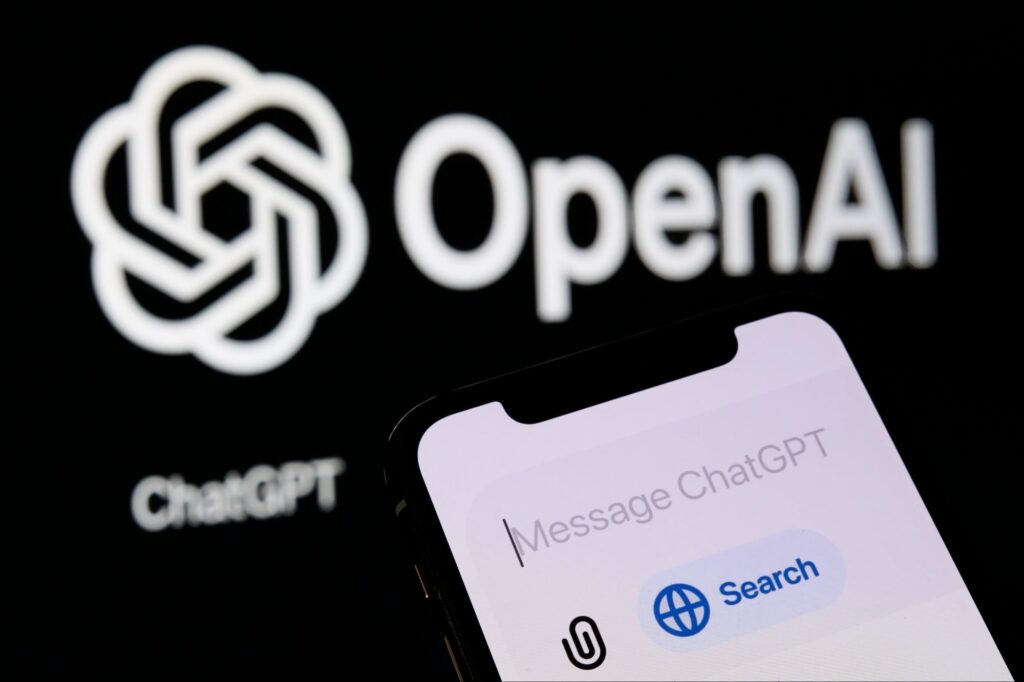Imagine typing a question into a search engine and getting an in-depth, conversational answer with links to sources. There’s no need to click on multiple websites to find an answer; it’s all laid out for you.
That’s the reality as of Monday when ChatGPT Search went live for all users with an OpenAI account.
OpenAI first introduced Search in late October as a way to get answers to time-sensitive questions quickly but limited the feature to paying users only at the time. Since its initial release, OpenAI has made Search “better” meaning it is “faster” and open to everyone, Kevin Weil, product lead at OpenAI, said in an announcement video.
Related: Google’s Biggest Bet Is Bringing AI to Search, Says CIO
This move puts ChatGPT into direct competition with Google as the place people go for answers to timely questions — but how well does it stack up? I tried ChatGPT Search to find out.
How To Use ChatGPT Search
First, I logged in to the web version of ChatGPT, chatgpt.com.
 Home screen for ChatGPT.
Home screen for ChatGPT.
There are two ways to search. The first is to type in a time-bound question or prompt into the “Message ChatGPT” box, which will prompt the AI chatbot to automatically search the web.
When I typed in “What is going on in NYC this weekend” ChatGPT knew to search for answers instead of coming up with one itself.
In a few seconds, it searched five sites and came up with a conversational answer about what was happening in the city this weekend.
 What’s going on in NYC this weekend? Part of ChatGPT’s response.
What’s going on in NYC this weekend? Part of ChatGPT’s response.
Another way to access ChatGPT Search is to type in a query and click the globe icon that stands for “Search the web.”
I typed in “How many users does ChatGPT have as of December 2024?” and clicked the globe before hitting enter. Almost immediately an answer came up that linked to multiple sources.
According to the data reporting site Demand Sage, ChatGPT has 300 million weekly active users and about 123.5 million daily active users. I can hover over the source to get a glimpse of the webpage that the statistics came from, and I can click the source to be taken directly there too.
 Hovering over the source.
Hovering over the source.
How Does ChatGPT Search Compare to Google?
I was pleasantly surprised by how timely the answers for ChatGPT Search were and how quickly the results populated. It all seemed designed to keep users talking to the AI chatbot for longer stretches of time, with little need to click away to other sites.
Related: Would You Pay $200 for ChatGPT? OpenAI’s New Reasoning Model Has a Hefty Price Tag.
One feature that ChatGPT Search lacks, though, is the ability to cite multiple sources for one piece of information. For example, other sites besides Demand Sage had the statistic that OpenAI has 300 million weekly active users, but OpenAI picked Demand Sage over the others. I would want more transparency into how the chatbot picks sites, and maybe more than one site referenced for one piece of information.
It seems like ChatGPT is becoming more like Google and vice versa. Google now shows experimental AI overviews, mimicking ChatGPT’s written-out answers, while ChatGPT is searching the web for answers. Google has more links and references to sources, but ChatGPT links to sources more cleanly.
 Google’s AI overviews.
Google’s AI overviews.
Will ChatGPT replace Google?
Not yet. For me, the variety of sources that Google offers is more valuable than the current ChatGPT offerings— it’s too limited with its sourcing, for now. As ChatGPT adds more sources and grows in functionality, though, it may grow to be a stronger Google competitor.
Related: ChatGPT Is Roasting Instagram Profiles in a Hilarious New Social Media Trend — Here’s How to Get Access






